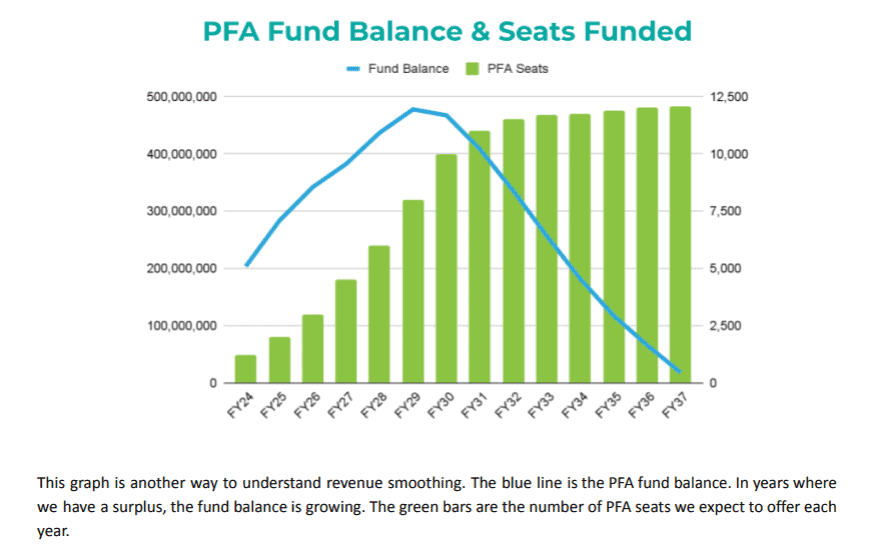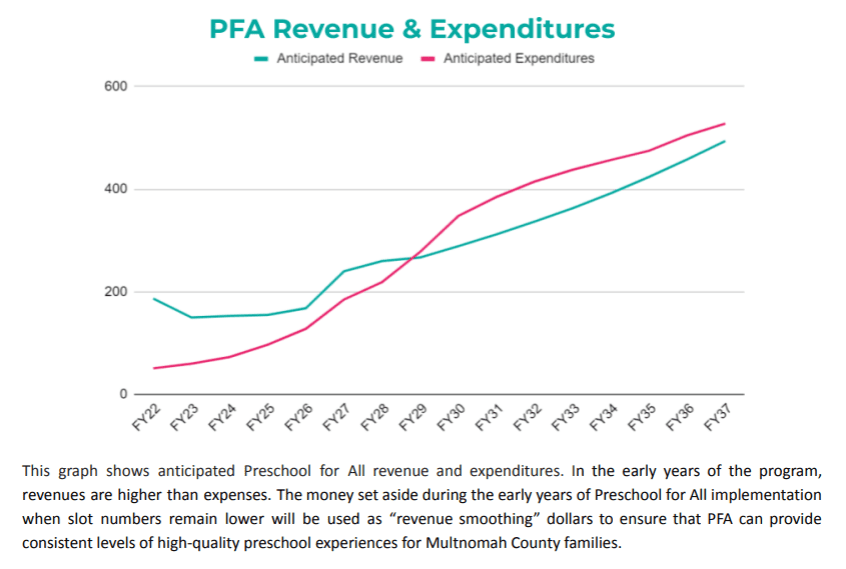What if there were a way to connect every 3- and 4-year-old in Multnomah County to free, inclusive, culturally responsive preschool experiences? This inspiring goal is coming to life through Preschool for All, a program built through long-term community engagement with parents, educators, policymakers, organizations and early childhood specialists. In just one year, Preschool for All has made the dream of preschool possible for more than 700 children at 47 sites in 16 zip codes across Multnomah County.
As one of the most expensive states in the nation for preschool, public funding for preschool in Oregon has been limited, reaching fewer than 20 percent of three- and four-year-olds in the county. Within this already severe lack of access, racial disparities intensify the impact of inequality in Oregon and across the country. According to the State of Preschool Annual Report (NIEER 2020), 59 percent of white three- and four-year-olds were enrolled in preschool, compared to 43 percent of Black children and 46 percent of Latinx children in the same age group. This imbalance only compounds the systemic disadvantages faced by BIPOC children and communities as they progress through the education system. Access to preschool makes a huge difference in supporting children and families early on and transforming unjust circumstances into opportunities where everyone can thrive.
Preschool improves life-long health, education, economic, and social outcomes for children and their families. But as research from Schools Skills and Synapses shows, it’s also a great investment for communities, where every dollar spent on high-quality preschool represents a return of $7–10. Because of this exponentially positive benefit, Preschool for All receives its funding from a small personal income tax on those with the largest incomes in the county. This 2-3 percent tax allows individuals with the county’s highest earnings to support and improve the lives of those with less access to financial resources, all while boosting outcomes for their own communities.

While tax revenue from personal income naturally varies from year to year, Preschool for All ensures a stable funding structure and level of service to families through three strategies: a reserve fund, a contingency fund, and revenue smoothing. This preparation allows for the ebbs and flows of every decade to be managed from a steady, long-term perspective of abundance.

Building a new system that will not just survive but flourish requires intentionality and time. Through consistent evaluation, accountability, and a willingness to innovate, Preschool for All is ready to keep growing as both a smart public investment and a commitment to supporting the next generation.
Want to learn more about how tuition-free preschool can help by making sure every child has access to high-quality, joyful early learning programming? Check out the Preschool for All 2023 Implementation update or learn about the funding and budget plan for PFA in the report below.
